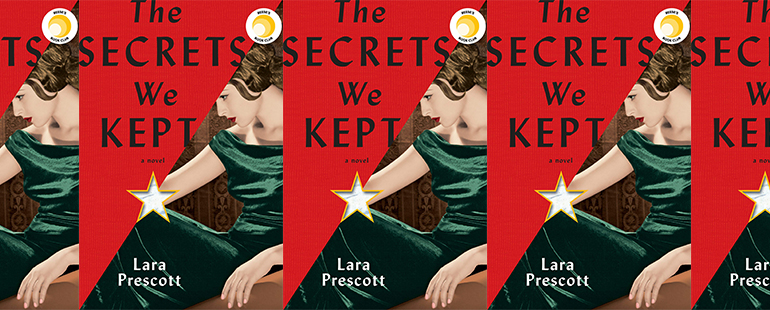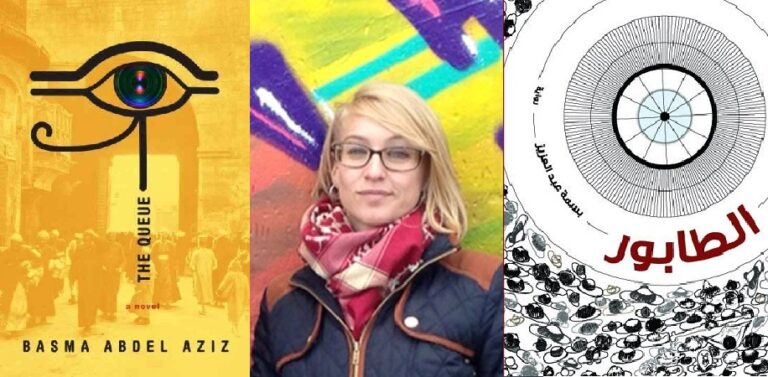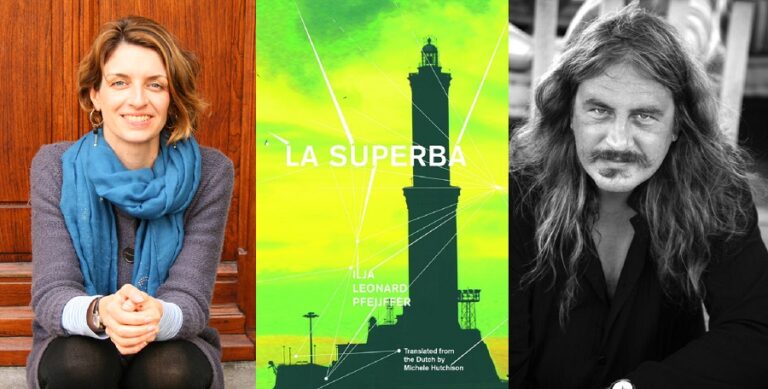“The CIA had a huge role in shaping mid-century literature”: An Interview with Lara Prescott

During the Cold War, the United States’s intelligence community went to great lengths to undermine Soviet Russia in the cultural sphere. Using various guises and front organizations, the CIA’s covert books program managed to distribute some 10 million books and periodicals behind the Iron Curtain that would’ve otherwise been banned. The CIA was also involved in smuggling books by Russian authors out of Soviet-controlled territory and making them available to international audiences.
One sterling example of this is Boris Pasternak’s Doctor Zhivago. Completed in 1956 after decades of labor, then rejected by Soviet editors on ideological grounds, the novel, about a Russian doctor and poet struggling to preserve a life of contemplation amid the 1917 Russian Revolution while navigating a complex love affair with both his wife, Tonya, and lover, Lara, was eventually smuggled out of Russia with Pasternak’s help and printed in 1957 by the Italian publisher Giangiacomo Feltrinelli in an Italian translation. Before its publication, the CIA managed to obtain a copy of the original Zhivago manuscript. The Agency immediately recognized the book’s propaganda value. As Soviet Russia Division Chief John Maury wrote in an internal memo, “Pasternak’s humanistic message—that every person is entitled to a private life and deserves respect as a human being, irrespective of the extent of his political loyalty or contribution to the state—poses a fundamental challenge to the Soviet ethic of sacrifice of the individual to the Communist system.”
The Agency threw its weight behind the book, arranging for a rush printing of the Russian manuscript, which was then distributed by undercover agents to Soviet visitors at the 1958 World’s Fair in Brussels. These efforts, and others like them, possibly contributed to Pasternak’s Nobel Prize win later that year—and the CIA’s Zhivago campaign didn’t end there. The Agency also used its web of CIA-funded magazines—the “Mighty Wurlitzer,” as propaganda chief Frank Wisner dubbed it—to promote the novel. Among these magazines was the Paris Review, whose 1960 “Art of Fiction” interview with Pasternak effectively went viral for its time. The Paris Review’s interviewer, the writer and translator (and granddaughter of famed Russian exile Leonid Andreyev) Olga Carlisle, discussed her Pasternak encounter on TV roundtables with luminaries like T.S. Eliot and Mary McCarthy, while the interview itself was syndicated in publications across the world—many of which were receiving secret funding from the Congress for Cultural Freedom, another covert arm of the CIA.
Lara Prescott’s thrilling debut novel, The Secrets We Kept, published last fall, is set in this milieu, focusing on the CIA’s efforts to smuggle and distribute Pasternak’s legendary novel. But it takes a subversive approach to the Zhivago affair, telling the story from the perspective of the unsung women, at both the CIA and in Soviet Russia, who made Pasternak’s legend possible. In the US, the novel concentrates on a pair of fictional CIA secretaries named Sally and Irina, who, while ferrying documents crucial to the Zhivago operation, forge an illicit romantic connection. (During the little-known “Lavender Scare,” which saw hundreds of gay men and women purged from government, their romantic connection is potentially more dangerous than their clandestine work for the CIA, and must be kept secret from their boss, Teddy). In Russia, meanwhile, the novel follows the travails of Pasternak’s real-life mistress Olga Ivinskaya, the inspiration for Lara in Zhivago who did multiple gulag stints on Pasternak’s behalf and played a key role in getting his novel published.
Prescott, who formerly worked as a political campaign consultant in Washington, leverages her intimate acquaintance with the city to create an evocative picture of the murky heart of Cold War America. Her book has been a smashing success, with a first printing of 200,000 copies, translation into 28 languages, and a film adaptation already in place. I spoke with Prescott this winter to talk about her novel, the “Cultural Cold War,” and the CIA’s impact on world literature.
Rob Madole: Your book is about the CIA’s efforts to have Doctor Zhivago published in the West and then smuggled back into Russia. What got you interested in the topic?
Lara Prescott: I think what brought me to the story initially was that I was named Lara, after the main heroine in Doctor Zhivago, and so I’ve always had this love of Boris Pasternak’s book. I read it in high school first, but I had seen the [1965] David Lean film growing up, and it was one of those stories that just had a really lasting impact on me.
I learned about the CIA’s Zhivago mission around 2014, when the documents were released. I’m fascinated by propaganda, in general, because I used to work in politics, and so I’m really interested in how words can change people. And at the time, I was wanting to become a writer. And I was like, oh my gosh, Doctor Zhivago was used as a weapon. It was used as propaganda. Unbeknownst to Boris Pasternak, or against his will. And realizing that—that a book had this great power, that the CIA believed in it—I just had to find out everything I could about it.
RM: Why did those documents get unclassified in the first place?
LP: There was a FOIA request by a journalist at the Washington Post named Peter Finn, who later wrote a nonfiction book called The Zhivago Affair with Petra Couvée. And so he petitioned for the documents. It was this longstanding rumor. Even way back in the 1960s, the CIA was rumored to have some involvement, but they always denied it. And I think they finally agreed to release it after the FOIA. But also, I think, they were using it as a form of propaganda. Like, look at this fun thing the CIA did. Back before we were, you know, evil. (Laughs.)
RM: So even today Zhivago is being used as a propaganda tool.
LP: Yeah. I actually was thinking a lot about this, because when they did release the documents, of course Peter Finn wrote about it, but they had this kind of “fun” social media campaign about it. They tweeted in Russian, and people were like “What is going on? What does this mean?” and they were tweeting about Doctor Zhivago. So it was almost this nice PR opportunity for them to show, like, “Oh, we smuggled this masterpiece. We were the good guys.”
RM: Did the Zhivago documents reveal anything unflattering about the CIA’s activities?
LP: There was nothing unflattering. It was about 99 documents. Who knows how many more there were. They really focus on the Zhivago mission, but also talk a lot about the CIA’s books program in general, which was part of the “Cultural Cold War.” They smuggled, I think, about ten million books and pamphlets into the Eastern bloc, from its inception up until the 1990s, when they said they stopped the program. So the release was totally focused on Zhivago, and who knows what other things weren’t included. But that was why I was really interested in writing it as a fictional account, because most of the names of the officers involved, and a lot of the details, have been redacted.
RM: Your character Teddy, a CIA agent, says something along the lines of, “Art can only thrive in a free nation.” I was curious how you view that claim. It’s interesting because Pasternak, writing Zhivago in Communist Russia, is kind of a counterfactual to that.
LP: No, I don’t agree with it. I think that’s what the CIA thought. I mean, just looking at the current day, art is still existing in places like China, and Turkey, where artists are persecuted, and writers are locked up. I think part of the motivation was, “This is how we can show them that we’re better.” The Soviets did the same thing, on the other side. “Our nation produces the best artists. We have the best athletes. We have the best music. We have the best literature, because of our way of life.” But really, humans can produce art under any circumstances. It has nothing to do with what the government is doing. I think. (Laughs.)
But I think that’s what the CIA really believed. “Art can change the world. We can only have the best art if we’re free.” Free. (Air quotes.) In their terms. But I think, often, art is a response to not being free, as well. In a lot of places.
RM: And I think the flipside of the coin is that, in a sense, the CIA’s efforts in the Cultural Cold War lend a certain “un-freedom” to art in the West. It creates a system where certain kinds of art get promoted.
LP: Absolutely. It’s a distortion of art. Because so many of these people, whether it’s Boris Pasternak, whether it’s Jackson Pollock—they had their art used to advance the United States. But they did not intend that. If someone did that to me, I would be horrified. So it’s a distortion of what the true nature of the art was. It’s interesting to see who gets elevated and who doesn’t.
RM: Famously, the Paris Review received CIA funding. And the Iowa Writer’s Workshop has certain ties to the Cultural Cold War. So even though the Zhivago affair is an inspiring example in many ways—of how art can be freed from a totalitarian context—there is also something unsettling about the CIA’s literary efforts. How do you see the lasting cultural impact?
LP: Well, when you have a powerful organization with almost limitless funds, in the black, sponsoring writers…I think they chose writers and artists of a certain gender, a certain color, and I think those writers were elevated to great heights as a result. Which has many lasting impacts. Like, this is what literature is. This is how we define serious literature. I think we’re coming out of that, now. Hopefully. Having more voices involved. But I think the impact of deciding, This is who we’re going to publish, this is who we’re going to support…If you look at those early organizations and who was involved, it is very white. I mean, you have the FBI and the CIA monitoring James Baldwin. Why? Why was it James Baldwin? And why were other writers put on tour with state support?
RM: And being under surveillance becomes a constraint on freedom for him.
LP: Yeah. And I think that has lasting impacts on literature in general. The CIA did have a huge role in shaping mid-century literature.
RM: In fictionalizing this story, you adopted an unusual perspective. The book begins from the perspective of the CIA’s typist pool, narrated in the first-person plural—something like a Greek chorus of CIA women, describing the events of the story.
LP: That was actually the first voice that I wrote. When I was reading the documents, for some reason I was like, “Who are the women that typed these documents. What were they like?” And I started thinking of the voice of the “we.” It was almost just something that came to me. And I thought, “I don’t know if I can do this. I’m gonna try.” I’ve never written in first-person plural in my life. And I could only think of The Virgin Suicides, and a couple of other books, that have used it.
I was initially planning to write the whole novel that way. But I quickly realized that I couldn’t tell the whole story just from these people’s limited perspective, even if I went real magical with it, and they could know everything. The characters of Sally and Irina came from this. Because I thought, what if I split some of the typists off? What would that mean? And that voice led to other voices. And this led to the realization that I needed to tell what’s happening on the Russian side. So it helped me form the structure.
RM: Boris Pasternak is portrayed in the book as this very blinkered man, who’s kind of unaware of the repercussions of his work on the people he loves. Olga, his typist and mistress—the real-life inspiration for Lara in Zhivago—ultimately goes to the gulags for him. At the same time, he’s writing this enduring work of art that has major repercussions for geopolitical history. This seems like a major push and pull in the novel. The making of fiction, that is to say, has this sort of vampiric relationship to the people it uses for inspiration, yet it also has an ameliorative impact on the world. How do you square these two things?
LP: Yeah. I’m interested in, I guess, the actual genius, or self-proclaimed genius writer. And how they can be working on this great work that creates such empathy and can change things in the world, but also, in their personal lives, everything is sacrificed…What kind of person does that? What sort of selfishness is involved?
This is true of just being a writer in general. Being selfish with your time. I mean, even myself, I’m very selfish with my time. When I’m writing, I don’t want to be interrupted. And I can be kind of crabby if I don’t have a good day. And I think, for someone like Pasternak, when he was raised to this great level of celebrity, I think nothing came before the work. The work was his lasting impact. I think he was very interested in leaving a lasting impact behind. And how does that affect his wife? How does that affect Olga?
RM: Is there something quintessentially male about the way this great-author stereotype is encoded and perpetuated? Because it also feels like such a particularly mid-century phenomenon. The vaunting of the “great genius author.” The structures of prestige around that.
LP: I think, if you look at history, then I think yes. There are a lot of examples of men who are self-proclaimed geniuses. And act that way. And I don’t know if that’s just a male thing, or because they had the opportunity to reach those heights. Women didn’t often have that opportunity.
But it does seem like it’s increasingly a thing of the past. People aren’t as interested in elevating just one person to that level. It’s more interesting to have many different voices that haven’t been heard before, instead of having this one male voice. The voice that will lead us somewhere. Today, there’s more of a stress on, “I need to have bits and pieces of everybody.” I hope, anyway.
RM: Can you be a writer and be a good person?
LP: I think you can. (Laughs.) I definitely think you can. And I’ve met a lot of great writers who are good people. I do think every writer needs to learn how to tamper ego. And that’s a lifelong battle.


